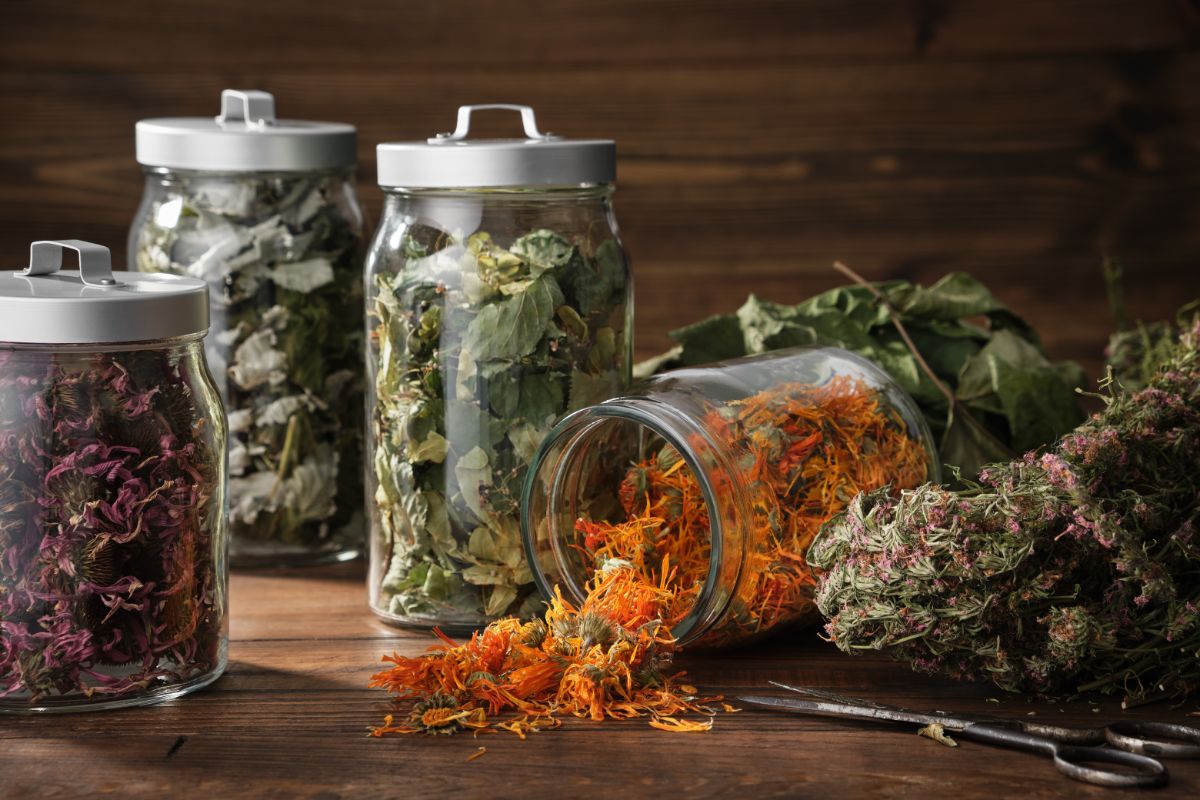The best food storage containers for preserving dried herbs at room temperature are vacuum-sealed, dark-colored containers. Airtight containers are the best option for kitchen storage, where they will be opened regularly, and the herbs get exposed to oxygen and moisture.
Table of Contents
What is the Best Way to Store Dried Herbs?
The best way to store dried herbs is to keep them whole and store them in a cool, dry, dark place. Whole dried herbs retain essential oils, flavor, and aroma better than their crumbled or ground counterparts.
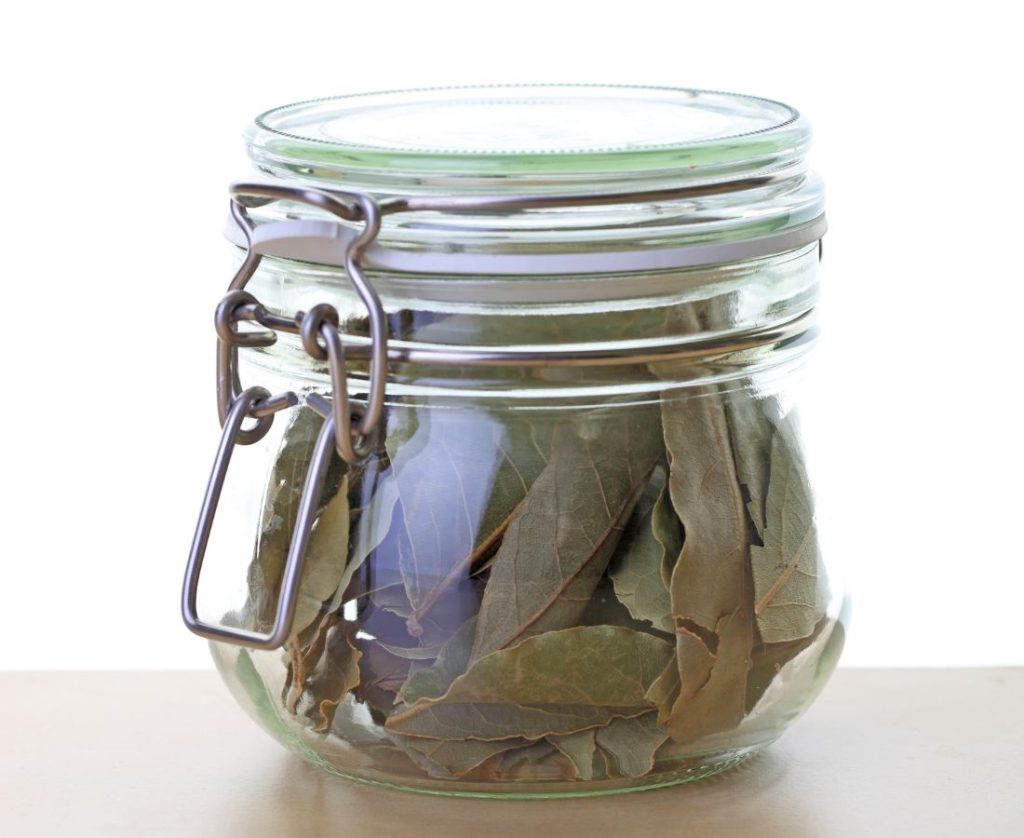
Should Dried Herbs Be Kept in Clear Containers?
Clear containers are safe for storing dried herbs for both short and long durations. They have their own advantages and disadvantages, which you may consider before using them.
Advantages of Clear Containers
- Clear containers make it easy to monitor the condition of the dried herbs.
- Clear containers provide aesthetic value by displaying colored herbs.
- Plastic containers are better at avoiding freezer burn than glass containers.
- Quickly identify the contents of whole herbs even without checking the label.
- You can easily transform clear containers into dark-colored containers by painting them.
Disadvantages of Clear Containers
- Clear storage containers do not protect the contents from light.
- Clear containers require storage space in the pantry, freezer, or refrigerator to block light.
- Plastic containers become dry and brittle with repeated use and stain easily.
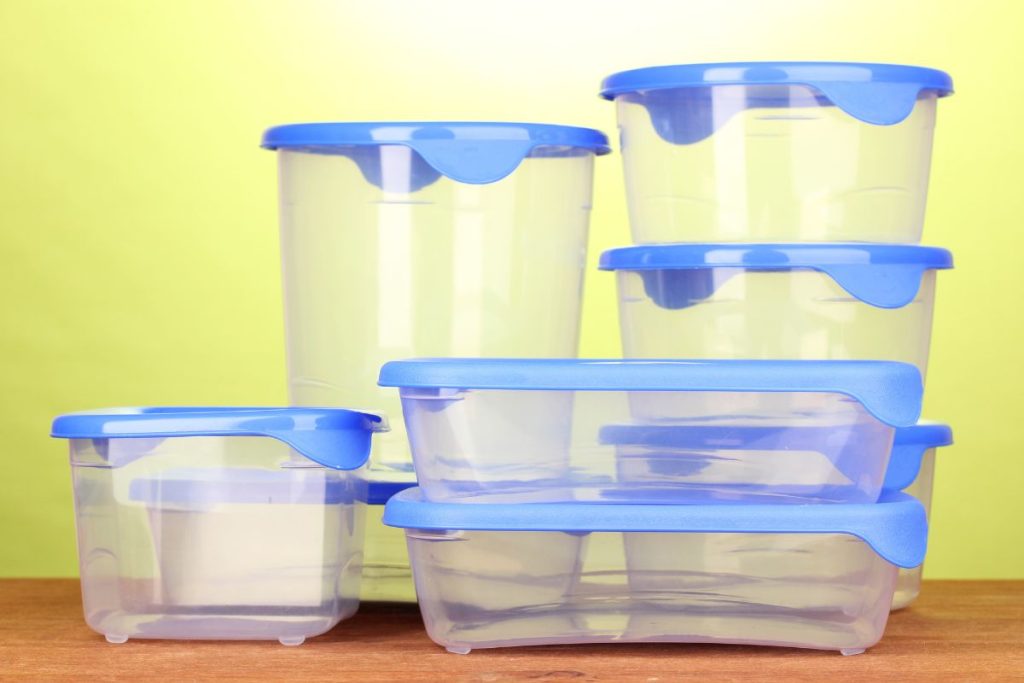
Are UV Glass Containers Important for Storing Dry Herbs?
UV glass containers are tinted or dark-colored to protect the contents from ultraviolet rays that cause light damage to stored foods. They are commonly referred to as tinted or dark-colored glass containers.
The most common UV glass containers are amber glass storage jars, such as the ones used in apothecaries to store herbal tinctures.
Tinted glass containers are an excellent alternative to clear glass or plastic canisters. They keep UV radiation from direct sunlight and artificial light sources from reaching the food with a success rate of up to 99%.
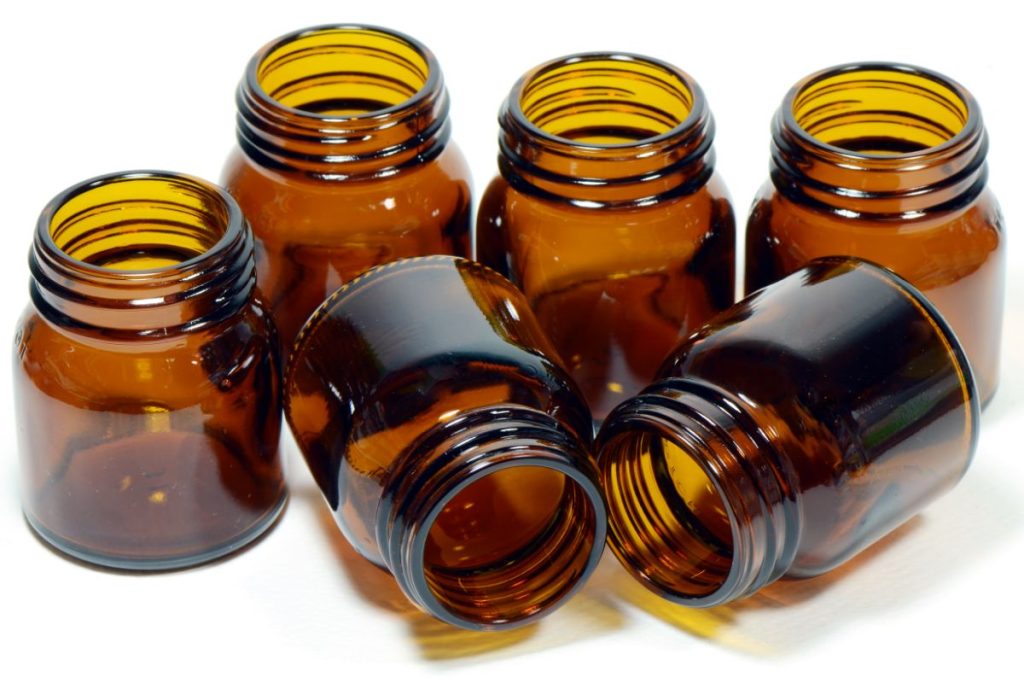
What is the Best Container to Store Herbs?
The best containers for storing dry herbs at room temperature are dark-colored glass containers like glass jars, mason jars, and canning jars that have been vacuum-sealed. Vacuum sealing removes up to 99% of the air inside the container, leaving it with little to no oxygen and moisture usually held in the air.
Vacuum-sealed Mylar bags are the best for storing dehydrated herbs in the freezer or refrigerator. Mylar bags are waterproof, making them suitable for high-moisture environments. You’ll want to avoid keeping Mylar bags at room temperature since they do not guard against pests.
Unconventional Dried Herb Storage Containers
You can keep dried herbs for a short time in other containers such as:
- Dry herb saver pods can be used for dried herbs
- Glass jars with bamboo lids offer sustainability
- Stainless steel spice jars for herbs compatible with metal
- Stash boxes or stash jars can be used for dried herbs
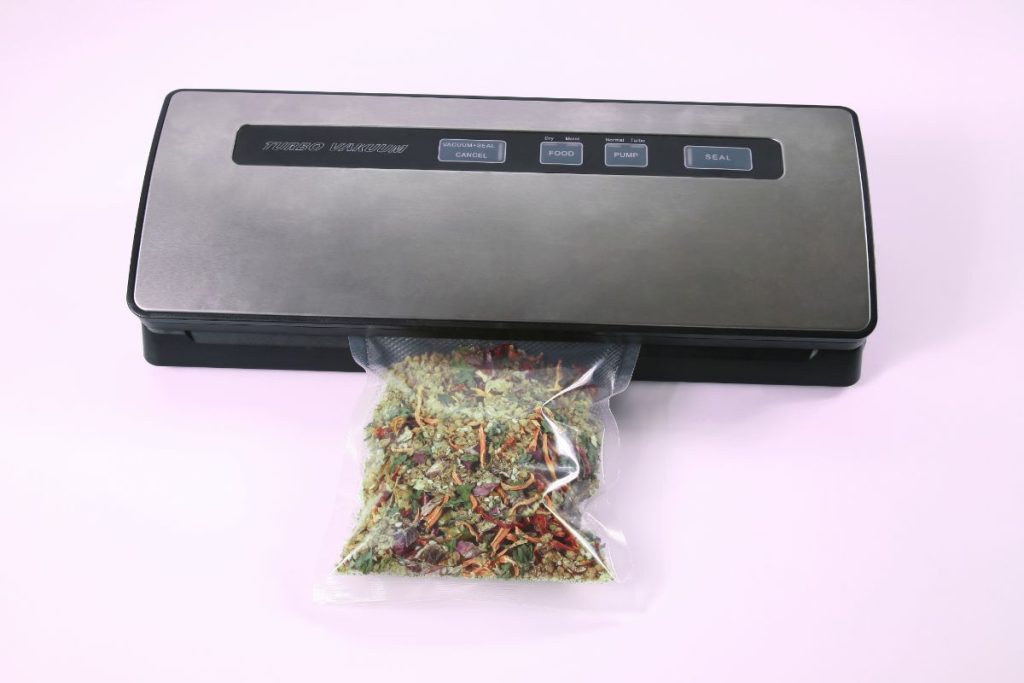
What are the Benefits of Airtight Containers?
It’s best to store herbs in airtight containers to improve their shelf life. Below are the key benefits of using airtight storage containers:
- It’s easy to organize and access dried herbs packaged in airtight glass containers.
- It’s easy to reseal airtight containers.
- Plastic containers are less prone to breakages under pressure.
- Spills are minimal with airtight containers.
- The airtight seal ensures no air enters the container, preventing oxidation.
- They keep rodents and insects away to prevent losses.
How Long Do Herbs Last in Airtight Containers?
When kept at room temperature, dried herbs last between 6 months and five years. The amount of time varies depending on the herb, drying process used, and specific container.
| Type of Herb | Shelf Life |
| Caraway | 6 – 12 months |
| Celery seeds | 4 – 5 years |
| Chives | 6 – 12 months |
| Cilantro | 6 – 12 months |
| Dill | 4 – 12 months |
| Fennel | 3 – 6 months |
| Ginger | 1 – 2 years |
| Mint | 12 months |
| Oregano | 2 – 3 years |
5 Tips for Storing Dried Herbs
- Always ensure home-grown fresh herbs are free from bugs before drying.
- Ensure herbs are fully dry before storing them. Store them whole and use a herb grinder to pulverize them as needed.
- Always condition dried herbs before long-term storage.
- Clean previously used herb storage jars thoroughly before re-using them.
- If you live in a high-humidity climate, add a silicone desiccant packet to containers.
What is the Best Way to Store Herbs in the Kitchen?
For repeat use in the kitchen, it’s best to store high-quality dried herbs in small batches at room temperature in regular airtight containers. You may like using wide-mouth containers, but smaller jars lead to less air and moisture exposure.
Storing the herbs in small quantities also reduces spoilage caused by exposure to oxygen and moisture in containers you open regularly.

